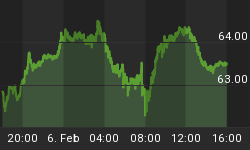The University of Michigan consumer sentiment numbers came out today. Sentiment is down again this month, albeit slightly. Yet, confidence remains at a lofty level.
Economists claim high sentiment numbers are good news for retail spending. Economists also claim the high confidence numbers is a reflection on the overall health of the domestic economy.
Sentiment Theory vs. Practice
Let's take a look at that theory starting with the Bloomberg Consensus Estimate of the University of Michigan sentiment numbers.
Consumer sentiment is little changed so far this month, at 92.9 for the mid-month August reading vs 93.1 for final July. An early indication on August's consumer sector comes with the current conditions component which is nearly unchanged, at 107.1 vs July's 107.2. This hints at steady strength for consumer spending this month. The expectations component, which offers indications on the employment outlook, slipped 3 tenths to a still solid 83.8.
Inflation readings are also little changed and have yet to reflect the ongoing price collapse for oil, at 2.8 percent for 1-year expectations, which is unchanged, and 2.7 percent for 5-year expectations which is down 1 tenth.
Consumer confidence readings are down from their highs earlier in the year but are still very solid and a reminder that unemployment is low and that the domestic economy is healthy.
Definition
The University of Michigan's Consumer Survey Center questions 500 households each month on their financial conditions and attitudes about the economy. Consumer sentiment is directly related to the strength of consumer spending. Consumer confidence and consumer sentiment are two ways of talking about consumer attitudes. Among economic reports, consumer sentiment refers to the Michigan survey while consumer confidence refers to The Conference Board's survey. Preliminary estimates for a month are released at mid-month. Final estimates for a month are released near the end of the month.
Having taken a look at what economists claim, let's investigate the accuracy of those claims.
Consumer Sentiment vs. Retail Sales
Sentiment has a tendency to rise due to population growth. So instead, let's focus on year-over-year changes in sentiment vs. year-over-year sales growth.
Consumer Sentiment vs. Retail Sales (Percent Growth from Year Ago)
Consumer Sentiment as Measure of Sound Economy
Proven Bullsheet
- The idea that spending follows consumer sentiment is proven silliness.
- The idea that confidence readings are a sign of a healthy economy are as ridiculous, if not even more ridiculous.


















